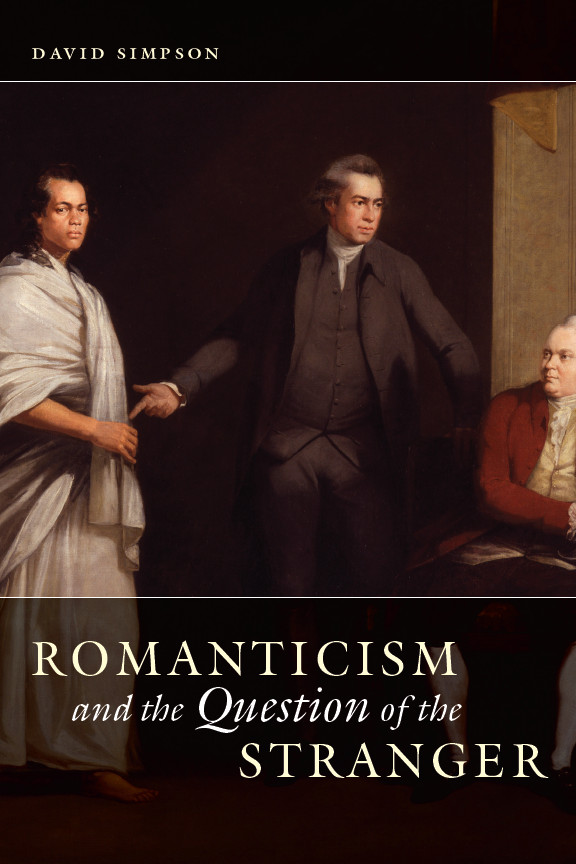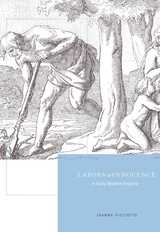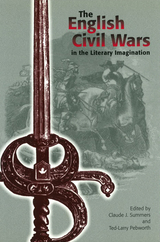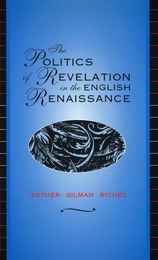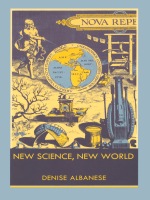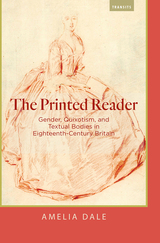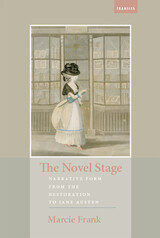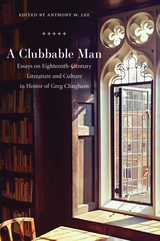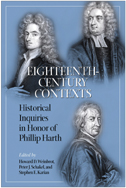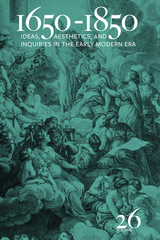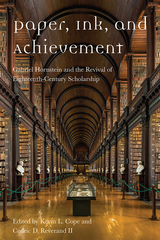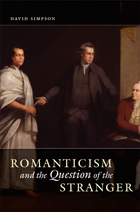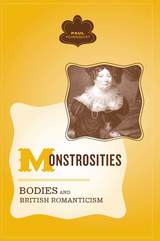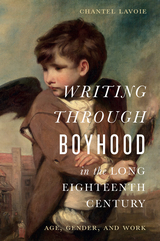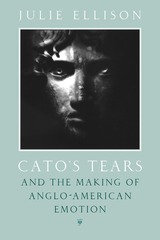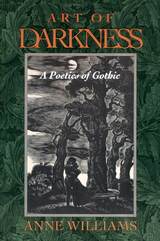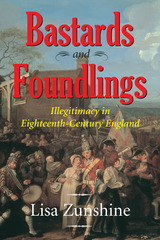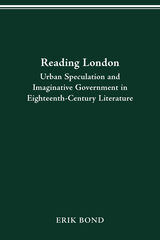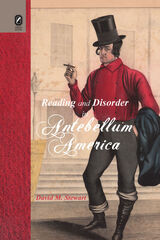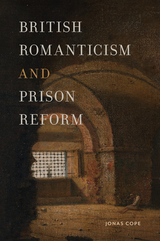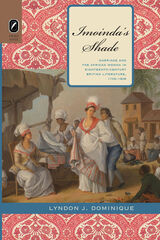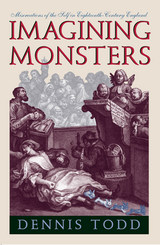Romanticism and the Question of the Stranger
University of Chicago Press, 2012
eISBN: 978-0-226-92236-2 | Cloth: 978-0-226-92235-5
Library of Congress Classification PR447.S58 2013
Dewey Decimal Classification 820.9145
eISBN: 978-0-226-92236-2 | Cloth: 978-0-226-92235-5
Library of Congress Classification PR447.S58 2013
Dewey Decimal Classification 820.9145
ABOUT THIS BOOK | AUTHOR BIOGRAPHY | REVIEWS | TOC | REQUEST ACCESSIBLE FILE
ABOUT THIS BOOK
In our post-9/11 world, the figure of the stranger—the foreigner, the enemy, the unknown visitor—carries a particular urgency, and the force of language used to describe those who are “different” has become particularly strong. But arguments about the stranger are not unique to our time. In Romanticism and the Question of the Stranger, David Simpson locates the figure of the stranger and the rhetoric of strangeness in romanticism and places them in a tradition that extends from antiquity to today.
Simpson shows that debates about strangers loomed large in the French Republic of the 1790s, resulting in heated discourse that weighed who was to be welcomed and who was to be proscribed as dangerous. Placing this debate in the context of classical, biblical, and other later writings, he identifies a persistent difficulty in controlling the play between the despised and the desired. He examines the stranger as found in the works of Coleridge, Austen, Scott, and Southey, as well as in depictions of the betrayals of hospitality in the literature of slavery and exploration—as in Mungo Park's Travels and Stedman's Narrative—and portrayals of strange women in de Staël, Rousseau, and Burney. Contributing to a rich strain of thinking about the stranger that includes interventions by Ricoeur and Derrida, Romanticism and the Question of the Stranger reveals the complex history of encounters with alien figures and our continued struggles with romantic concerns about the unknown.
See other books on: Other (Philosophy) in literature | Question | Romanticism | Simpson, David | Stranger
See other titles from University of Chicago Press
